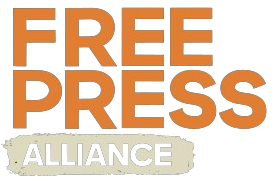Freedom of the press continues to be undermined in Haiti. The insecurity experienced by journalists due to violence and impunity is causing an unprecedented information black hole in the Caribbean nation.
Haiti has been plunged into a serious humanitarian, political, and security crisis since the assassination of President Jovenel Moïse in July 2021. Criminal gangs have grown stronger, and the escalation of violence has reached alarming levels, with thousands of murders, injuries, and sexual abuses recorded in recent years.
According to UN data, the number of victims of gang violence increased significantly in 2023, with 4,451 people killed and 1,668 injured. In the first three months of 2024, the number of reported murders was already 1,554. In early March, one of these gangs coordinated the escape of more than 3,600 prisoners from a jail, spreading terror in several areas of the country and leading to the resignation of Prime Minister Ariel Henry.
The gangs dominate a significant part of the territory, including key infrastructure such as ports and airports. Amnesty International reminds us that “Criminal gangs that are spreading terror must be made aware that the gravity of their actions entails accountability and that they can therefore be prosecuted for crimes under international law and serious human rights violations.” However, the violence continues, and the international community receives insufficient information, obtained by journalists who know that exercising their profession has become synonymous with heroism.
The world must know what is happening in Haiti
To be able to report on the severity of the crisis facing the country, an ecosystem that allows journalists to work in complete safety is needed. The reality is that media professionals regularly suffer threats, disappearances, assaults, and kidnappings. Six journalists have been killed since 2022 because of their work, according to data from Reporters Without Borders (RSF), and many have had to resign themselves to exile.
The Office of the Special Rapporteur for Freedom of Expression (SRFOE) of the Inter-American Commission on Human Rights (IACHR) places the beginning of the decline of press freedom in the country in 2018. At that time, protests began to grow in Haiti due to social discontent over the increase in the price of gasoline, accusations of corruption against the government, and failed attempts to consolidate an electoral institutionality.
However, since criminal gangs have become stronger, the situation has worsened. Violence against journalists and repeated attacks against media facilities show that Haiti, especially its capital, is a silenced zone of high danger for media professionals.
Haiti is immersed in a context of constant armed conflict between criminal gangs and the forces of law and order, where information is scarce and those in charge of transmitting it suffer violence with absolute impunity, in the absence of the rule of law. According to the 2023 Global Impunity Index of the Committee to Protect Journalists (CPJ), the situation in Haiti is so dire that the country has the worst record, only surpassed by Syria and Somalia, in terms of justice for crimes against journalists in the last 10 years.

